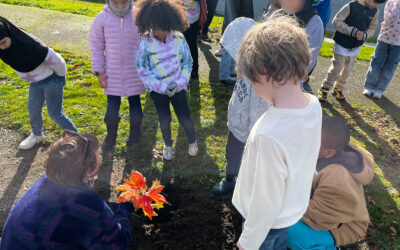Teacher Kassie, a 3rd-grade science teacher, explains how she set up her class of Spanish-speaking students to write and perform Science Theater sketches as a way to explain the impacts of dams on the life cycle of salmon. Then an education researcher explains the implications of using Science Theater with your students. This work was part of the Promoting Asset-based Science Teaching for Emergent Language Learners (PASTEL) project, funded by the James S. McDonnell Foundation.
University of Washington: Designing for Ambitious Science Teacher Leadership Across School Districts
https://www.youtube.com/watch?v=Pr1UMKXnJZA...




 This site is primarily funded by the National Science Foundation (NSF) through Award #1907471 and #1315995
This site is primarily funded by the National Science Foundation (NSF) through Award #1907471 and #1315995